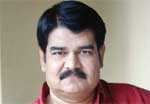 “In my lifetime, I want to see a society which will reflect Nazrul’s thoughts on secularism, progressiveness and equity,” says Sujit Mustafa in a conversation with daily sun recently.
“In my lifetime, I want to see a society which will reflect Nazrul’s thoughts on secularism, progressiveness and equity,” says Sujit Mustafa in a conversation with daily sun recently.
Whenever one thinks about Nazrul artistes of the country, the name that immediately comes up to mind is Sujit Mustafa.
Sujit Mustafa, a talented Nazrul singer in the country, has been carrying his music career over the last two decades. From Nazrul sangeet to classical music, contemporary songs and more, he has made his mark in every genre that he travels.
Apart from being an all-round artiste, Sujit Mustafa is an organiser and playing his part as the general secretary of Nazrul Sangeet Shilpi Parishad (NSSP).
His introduction to the realm of music begins when he was a boy of 10. His father Abu Hena Mustafa Kamal, a university teacher and noted cultural personality, was his greatest inspiration to pursue the path of music.
“While staying on the Rajshahi University campus with my father, I got my first lessons in music from Ustad Anup Kumar Das at Surjashishu, a cultural organisation. I used to learn various kinds of music there, including Tagore, Nazrul and patriotic songs. I was also a regular child artiste at the Bangladesh Betar, Rajshahi,” Sujit says recalling his early days.
“When I was a student of class ten, my family shifted from Rajshahi to Chittagong. In Chittagong, I received the company of Ustad Mihir Lala. From then on, I started learning pure classical music,” Sujit adds.
“In my college days, I got an injury to my back while riding a motor-cycle. Doctors prescribed me to lie on a flat wood for about one and half months. As there was no source of entertainment in our house excepting a Spool Tape Recorder, I began listening classical music from Ustad Gulam Ali, Amzad Khan and Bismillah Khan. I used to listen to the classical music of the legendry icons of India. This was another reason for being a devotee of classical music at my tender age,” Sujit continues.
“I enrolled in the Dhaka University in 1983. I also became a student of Chhayanaut, a renowned cultural organization, in the same year. I got there Ustad Phool Mukhopadhyay, Anjali Ray and Shohrab Hossain as my teachers,” he adds.
Speaking about his study on music in India, Sujit says, “I went to Shantiketan for receiving higher degree in classical music in 1986. But, after spending sometime in Kolkata, I went from Shantiniketan to Sriram Bharatiya Kala Kendra in Delhi as I got scholarship in classical music. I got pure classical lessons from Ustad Ameer Khan, widely known as ‘A Musician of the Musicians’. From him, I, for the first time, got some authentic lessons.”
“Apart from him, I also got the company of music experts such as Ustad Hafeez Ahmed Khan, Shanti Hiranand and Pundit Binod Kumar. Later, I returned to Dhaka in 1994 and wished to teach classical music at Chhayanaut in which I used to teach music before I went to India,” he informs.
“I do not know why Chhayanaut had not appointed me as a music teacher. However, I, along my wife Moonmoon Ahmed, a noted artiste of the country, opened Rewaz Performers School in which we are grooming young buds culturally, ethically and aesthetically,” Sujit says.
Sujit Mustafa has been actively involved with Nazrul Sangeet Shilpi Parishad (NSSP) since its inception in 2003.
About the future plans of NSSP, Sujit says, “NSSP is determined to broden Nazrul practice in the country and has opened 34 branches across the country. NSSP’s aim is to practise Nazrul Sangeet round the year.”
Asked about his satisfaction of Nazrul practice in the country, Sujit says, “Among 3500 timeless songs of Nazrul, only a handful has come to us. There is no authority to take initiatives to compose his lyrics. Promising and upcoming Nazrul singers of the country are confused to determine which tune is authentic. Regarding this, all the cultural organisations in the country should come forward to render a common platform through which we can solve certain things.”
According to Sujit, the media hardly telecast Nazrul sangeet, because electronic media give preference to financial returns over art and culture.
-With Daily Sun input




















